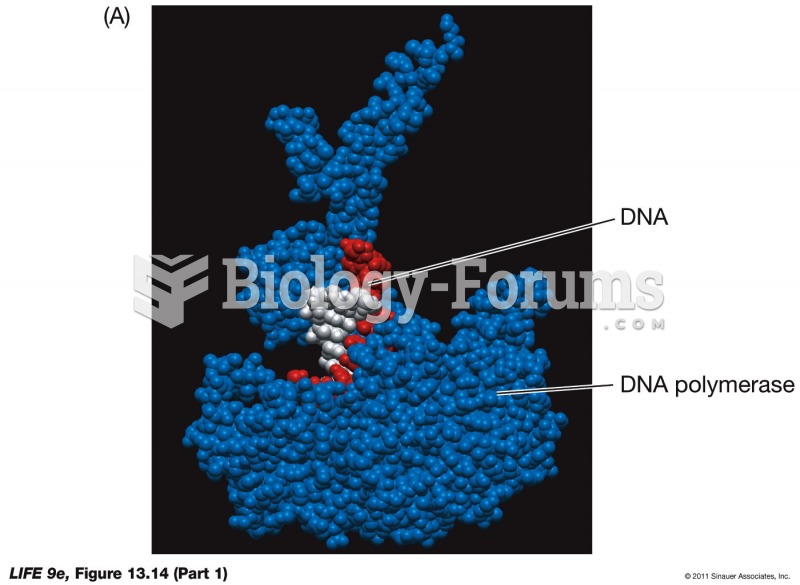|
|
|
Most childhood vaccines are 90–99% effective in preventing disease. Side effects are rarely serious.
Recent studies have shown that the number of medication errors increases in relation to the number of orders that are verified per pharmacist, per work shift.
Atropine was named after the Greek goddess Atropos, the oldest and ugliest of the three sisters known as the Fates, who controlled the destiny of men.
Hippocrates noted that blood separates into four differently colored liquids when removed from the body and examined: a pure red liquid mixed with white liquid material with a yellow-colored froth at the top and a black substance that settles underneath; he named these the four humors (for blood, phlegm, yellow bile, and black bile).
In the United States, congenital cytomegalovirus causes one child to become disabled almost every hour. CMV is the leading preventable viral cause of development disability in newborns. These disabilities include hearing or vision loss, and cerebral palsy.
 Three days after the Boston Marathon explosion, the FBI released this photograph that had been taken
Three days after the Boston Marathon explosion, the FBI released this photograph that had been taken
 Two wells are filled with related or partially identical antigens. The well on the left contains an ...
Two wells are filled with related or partially identical antigens. The well on the left contains an ...





